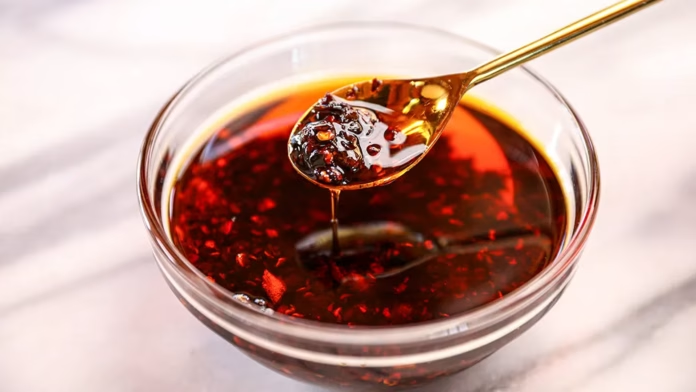Chilli oil is a popular condiment that is made by combining chilli peppers with oil. It is widely used in various cuisines across the world and is known for its spicy taste and aroma. While chilli oil is a tasty addition to many dishes, there are some people who should avoid consuming it due to its potential health risks. In this article, we will discuss who should not eat chilli oils and the reasons behind it.
People with Gastrointestinal Conditions:
One of the primary groups of people who should avoid consuming chilli oil is those who have gastrointestinal conditions. These conditions include ulcers, acid reflux, and irritable bowel syndrome (IBS). Chilli oil can irritate the lining of the stomach and exacerbate the symptoms of these conditions. For instance, in the case of ulcers, chilli oil can cause the stomach to produce more acid, leading to discomfort and pain. Similarly, for people with acid reflux, chilli oil can trigger the reflux and cause heartburn.
Moreover, people with IBS can also suffer from abdominal pain, bloating, and diarrhea when they consume chilli oil. The capsaicin, which is a compound found in chilli peppers that gives them their heat, can stimulate the intestinal lining and worsen the symptoms of IBS. Thus, people with gastrointestinal conditions should avoid chilli oil and opt for milder alternatives.
Individuals with Allergies or Sensitivities:
Another group of people who should not eat chilli oil is those who have allergies or sensitivities to chilli peppers or any of the other ingredients in chilli oil. Chili peppers are known to cause allergic reactions in some people, which can range from mild to severe. Symptoms of an allergic reaction to chilli peppers include itching, swelling, hives, and difficulty breathing. In severe cases, anaphylaxis can occur, which is a life-threatening allergic reaction.
Apart from chilli peppers, chilli oil contains other ingredients such as garlic, ginger, and sesame oil. People who are allergic to these ingredients should also avoid consuming chilli oil. Some people may also have sensitivities to certain ingredients in chilli oil, which can cause digestive problems, skin irritation, or other allergic reactions.
Pregnant Women:
Pregnant women should be cautious when consuming chilli oil as it can cause heartburn or exacerbate nausea, particularly in the later stages of pregnancy. The capsaicin in chilli peppers can stimulate the release of gastric acid, which can cause heartburn in pregnant women. Furthermore, the strong taste and aroma of chilli oil can trigger nausea in some pregnant women, making it difficult for them to eat.
Moreover, some studies suggest that consuming large amounts of spicy foods during pregnancy can increase the risk of preterm labor or low birth weight. Thus, pregnant women should limit their intake of chili oil and other spicy foods during pregnancy.
People with High Blood Pressure:
Chili oil can also be harmful to people with high blood pressure. The capsaicin in chili peppers can cause the blood vessels to constrict, which can increase blood pressure. People with hypertension should avoid consuming large amounts of chili oil or any other spicy foods.
Furthermore, some studies suggest that consuming large amounts of chili oil or other spicy foods can also increase the risk of cardiovascular disease. Thus, people with high blood pressure or a history of cardiovascular disease should be cautious when consuming chili oil.
Children:
Lastly, children should also avoid consuming chili oil due to its spicy taste and potential health risks. Children have a more sensitive palate than adults, and the strong taste and aroma of chili oil can be overwhelming for them. Moreover, the capsaicin in chili peppers can cause digestive problems in children, leading to abdominal pain, nausea, and diarrhea.
Furthermore, some studies suggest that consuming large amounts of spicy foods during childhood can increase the risk of developing a preference for high-fat, high-sugar foods later in life. This can contribute to obesity, which is a growing problem in children worldwide. Thus, it is recommended that children avoid consuming chili oil and other spicy foods until they are old enough to handle their spiciness and understand the potential health risks.
Chilli oil is a popular condiment that is loved by many for its spicy taste and aroma. However, there are some people who should avoid consuming it due to its potential health risks. People with gastrointestinal conditions, allergies or sensitivities, pregnant women, people with high blood pressure or a history of cardiovascular disease, and children should be cautious when consuming chilli oil. As with any dietary change, it is important to consult with a healthcare professional before making any significant changes to your diet.





